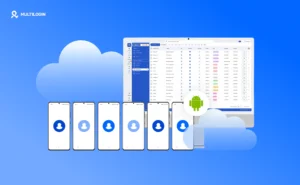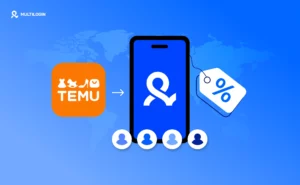Table of Contents
Tracking Prevention
Tracking prevention aims to give you more control over your online privacy, blocking these tracking methods from gathering your information. It ensures that your personal data remains private, allowing you to browse the web without constantly being followed.
What is Tracking Prevention?
Tracking Prevention is a feature used to block websites from collecting data on your online behavior. When you browse the internet, websites track your actions to build profiles about you for targeted ads, recommendations, or even other forms of data collection.
Tracking prevention helps keep your browsing private by stopping these tracking tools from working. It ensures that websites cannot follow you across the internet, making it harder for them to track your activity and gather personal information.
How Does Tracking Prevention Work?
Websites use different techniques to track you, such as:
- Cookies: Small pieces of data stored on your browser that remember your preferences or login details.
- Tracking Scripts: Code that collects your browsing activity and sends it back to advertisers or website owners.
- Browser Fingerprinting: A method that identifies you based on your device settings, like screen resolution, operating system, and installed fonts.
Tracking prevention blocks or limits the use of these methods. It can:
- Disable third-party cookies that are commonly used to track your activity across different websites.
- Prevent scripts that attempt to gather data about your browsing behavior.
- Hide your browser fingerprint, so it’s harder for websites to recognize you based on your unique device settings.
Why is Tracking Prevention Important?
In the digital age, privacy is more important than ever. Tracking can lead to unwanted:
- Targeted ads: You may see ads based on your previous searches or behavior, even if you’re not interested in those products.
- Data breaches: If websites store your personal data, it can be exposed in a breach, putting your sensitive information at risk.
- Invasion of privacy: Continuous tracking can feel like an invasion of your personal space, as websites collect a lot of data without your knowledge.
By using tracking prevention, you regain control of your online privacy. It limits the amount of personal information shared with websites, reducing your digital footprint and protecting you from online surveillance.
How Tracking Prevention Works with Antidetect Browsers
Antidetect browsers, like Multilogin, take tracking prevention a step further. These browsers are designed to:
- Mask your digital fingerprint: They create unique profiles for each online activity, ensuring your identity is separated across multiple accounts.
- Block unwanted trackers: In addition to tracking prevention, antidetect browsers use additional tools to block tracking scripts and ads from following you across websites.
- Automate privacy settings: Many antidetect browsers offer built-in features like auto-clearing cookies and masking geolocation, further enhancing your online privacy.
Key Takeaways
- Tracking prevention blocks websites from collecting your personal data.
- It helps protect your privacy and keep your online activity anonymous.
- Reduces targeted ads, data breaches, and unwanted tracking.
- Essential for maintaining control over what you share online.
People Also Ask
What is Tracking Prevention
Tracking Prevention is a feature that blocks websites from collecting personal data through tracking tools like cookies, scripts, and fingerprints. It helps protect privacy by stopping online tracking and reducing targeted advertising.
How Does Tracking Prevention Work?
Tracking Prevention works by blocking or limiting tracking methods used by websites to collect your data. It disables third-party cookies, prevents tracking scripts from running, and hides your digital fingerprint. This ensures that websites can’t track your activity across different sites, keeping your online behavior private and secure.
Why Is Tracking Prevention Important?
Tracking prevention protects your privacy by blocking websites from collecting your personal data. It helps prevent targeted ads, data breaches, and keeps your online activity anonymous.



